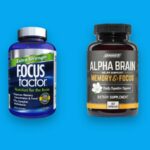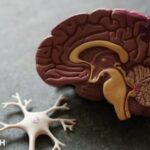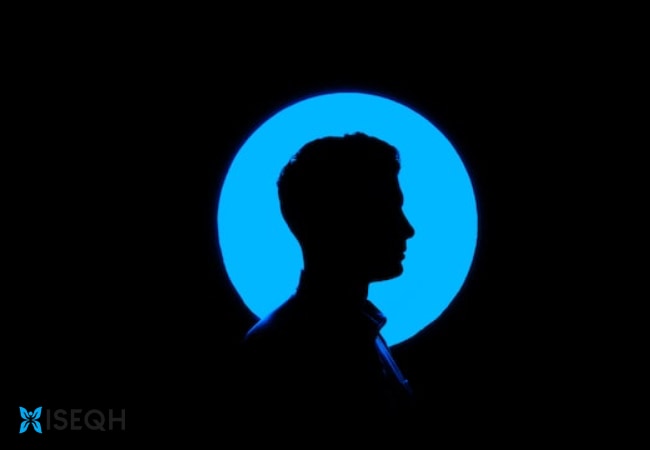
Table of Contents
Introduction
ADHD is a real challenge for many people. It can be difficult to focus, stay organized, and learn effectively. Fortunately, there are many ways to improve ADHD symptoms. One of the most popular ways is through nootropics. These supplements can help improve memory, focus, and concentration. They have also been shown to help with insomnia and anxiety as well. In this post, we’ll discuss some of the best nootropics for ADHD that are currently available. So let’s get started!
Taking a multinutrient supplement every day may help to reduce inflammation and improve overall brain health. Although there is no cure for ADHD, studies have shown that a number of therapeutic interventions can be effective in managing the symptoms of the condition and improving the overall quality of life of children with ADHD and their families. It is important to consult with your pediatrician before taking any medications or dietary supplements for the treatment of ADHD.
What are the signs of ADHD?
Researchers do not yet fully understand how to treat ADHD and what is behind it, although we only understand that involves three neurotransmitters (brain chemicals) that are not balanced:
Dopamine
These are linked to motivation and reward processes, which explain why people with ADHD tend to be hyperactive and impulsive. People with ADHD also have lower levels of dopamine than normal adults.
Norepinephrine
Norepinephrine is a neurotransmitter that helps regulate the body’s response to stress. ADHD children tend to have higher levels of norepinephrine than normal adults. It is believed that the hyperactivity seen in children with ADHD may be a result of their body’s increased response to stress.
Epinepherine
ADHD is clearly visible: hyperactive behavior disorder with distractibility and poor concentration. This kind of behavior shows not only at school but also at home. Some children hide it because they are afraid of being judged.
12 Best Nootropic Supplements For treating ADHD Symptoms
1. Phosphatidylserine (PS)
Phosphatidylserine is one of the ingredients that help balance the levels of neurotransmitters in the brain. Several studies have been conducted using PS in children and adults with ADHD. The results have been promising, suggesting that PS supplements can help treat some of the symptoms of ADHD.
A recent study showed that taking PS reduced hyperactivity and improved attention in children diagnosed with ADHD. PS is also a raw material for brain cell membranes. This can increase cell-to-cell communication in the brain, improving brain activity and reducing anxiety.
SUMMARY
Phosphatidylserine helps balance the levels of neurotransmitters in the brain. It has been used to treat ADHD in children and the results have been promising. It also improves attention in children diagnosed with ADHD. PS also improves cell-to-cell communication in the brain, brain activity, and reduces anxiety.
2. L-Tyrosine
Increased activity of the brain tyrosine leads to inhibition of dopamine production that leads to the secretion of catecholamines; these hormones have effects on physical development, metabolic processes, memory, learning ability and brain functions.
So, tyrosine causes an increase in the production of epinephrine that strengthens the nervous system and enhances mental function and alertness. Tyrosine is available in the form of capsules or as a powder to be added to a drink or food. Natural sources are eggs, fish and milk. Tyrosine supplements can also be found at health food stores and pharmacies.
SUMMARY
L-Tyrosine causes an increase in the production of epinephrine that strengthens the nervous system and enhances mental function and alertness.
3. L-Theanine

Theanine and Caffeine both promote alpha wave activity in the central nervous system and brain. Alpha waves are associated with relaxation, meditation and deep sleep. ADHD individuals are frequently deficient in this neurotransmitter. Research has associated low levels of Alpha Waves with increased impulsivity, lack of concentration and attention problems in people with ADD and ADHD.
L-theanine is a naturally occurring amino acid found in green tea, small amounts also occur in black, white, oolong and pu-erh teas. It can also be taken as a supplement from health food stores and pharmacies. Low doses can have a positive effect on mood, relaxation and focus. Higher doses can have the opposite effect by causing drowsiness.
SUMMARY
L-Theanine is a super important nootropic. It has a huge impact on depression because it regulates the brain chemicals, reduces stress in the body, boosts the immune system, and improves focus.
4. Omega-3 Fatty Acids
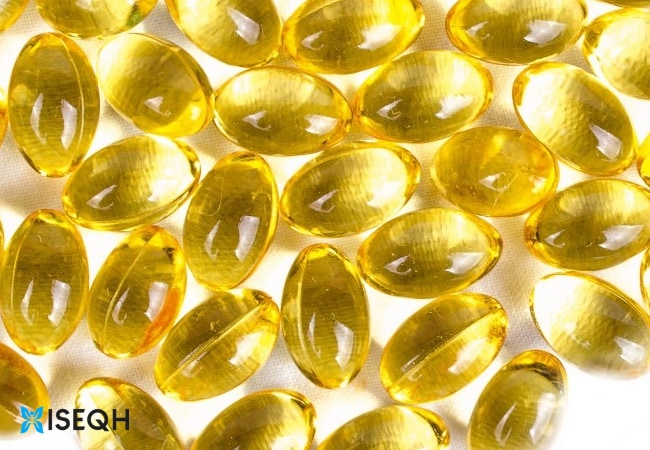
Research shows that people with AD/HD have lower levels of essential fatty acids in their diets compared with the general population. Studies have shown that omega-3 fatty acids decrease aggression, impulsivity, impulsiveness and emotional instability as well as helping to improve concentration and behavior. Diets containing high levels of omega-3 can reduce the symptoms of Attention Deficit Disorder.
Children and adults with ADHD are more likely to have low levels of omega-3s in their bodies than are non-ADHD children or adults. It is important to be aware that fish rich in omega 3 fatty acids can also be high in mercury and other heavy metals so it is important to choose fish low in mercury when increasing your consumption of fish rich in omega-3’s.
Omega 3 fish oils can be found in liquid form, capsule form and also in foods such as flaxseed oil, walnuts, oily fish such as salmon and tuna, soybeans and pumpkin seeds. There are some brands of Omega 3 fish oils that have been purified to remove the toxins including mercury present in the fish from which the oil is extracted.
SUMMARY
Omega-3 is super important. They decrease aggression, impulsivity, impulsiveness, and emotional instability in people with ADHD.
5. Vitamin B6
Deficiency of this vitamin is rare but may be more common in individuals with impaired digestion or absorption. It plays a role in the production of serotonin which affects mood. It has been shown to be effective in the treatment of certain psychiatric disorders such as depression and manic depression (bipolar disorder).
ADHD symptoms may also improve with supplementation with vitamin B6 although more research is needed in this area. The recommended dose is 25 mg daily. This can be obtained from a B complex supplement or multivitamin tablets or capsules.
SUMMARY
Vitamin B6 deficiency is rare but more common in people with ADHD. It plays a role in the production of serotonin which affects mood. It is also effective in the treatment of certain psychiatric disorders such as depression and bipolar disorder.
6. Bacopa Monnieri

Bacopa Monnieri is a plant native to India and Asia. It is often used in Ayurvedic medicine for its calming effect. It has also been used to treat various mental conditions such as anxiety and depression. Some studies have shown that Bacopa Monnieri improves cognitive function in people with AD/HD.
Further studies are required to confirm these findings. If your doctor suspects that you may be deficient in this vitamin they may suggest taking supplements or eating foods containing this vitamin (such as cauliflower, broccoli, spinach, Swiss chard, tomatoes, and avocado). ADHD symptoms may improve with this treatment but this has not been scientifically proven.
SUMMARY
Bacopa Monnieri has been used to treat various mental conditions such as anxiety and depression. Studies have shown that Bacopa Monnieri improves cognitive function in people with ADHD.
7. Citicoline
Citicoline has a number of health benefits and can be helpful in treating symptoms of ADHD. Citicoline works in the brain by increasing the production of acetylcholine which is a chemical that plays a role in the transmission of nerve impulses between nerve cells. This helps to improve attention span and concentration.
Studies have found that citicoline can improve focus and attention in children with ADHD. A doctor may prescribe citicoline as an add-on medication to treat ADHD or as a supplement to be taken in addition to other medications.
The most common side effect associated with citicoline treatment is nausea. This side effect is usually mild and tends to disappear after a short period of time.
SUMMARY
Citicoline has a number of health benefits. It helps in treating symptoms of ADHD. It increases the production of acetylcholine which helps in improving attention span and concentration. It improves focus in children with ADHD.
8. Maritime Pine Bark Extract
The extract found in maritime pine bark called Pycnogenol comes from the bark of the maritime pine tree, which is commonly found in southern Europe. It is used by people with a variety of different health conditions including anxiety and ADHD.
There is some evidence that Pycnogenol can help with the symptoms of ADHD such as impulsivity, hyperactivity, and inattention.
However further research is required before it can be recommended that people with ADHD take Pycnogenol as a supplement.
SUMMARY
Studies have shown that Maritime Pine Bark extract helps with symptoms of ADHD such as impulsivity, hyperactivity, and inattention.
9. Ginkgo Biloba

Current research suggests that ginkgo Biloba may help with treating some of the symptoms of ADHD. Studies have shown that it can help reduce symptoms such as fatigue and depression. There have also been studies that suggest it can improve memory and learning skills as well.
It has also been linked to an improved sense of well-being in some people who take it. It is thought that these effects are a result of its ability to increase the amount of oxygen in the blood which could help to improve brain function.
Many people also use it to help improve their circulation and reduce pain in their joints. It does tend to cause some side effects which include headaches and stomach upset for some people.
SUMMARY
Ginkgo Biloba can treat some of the symptoms of ADHD. It can help reduce symptoms such as fatigue and depression. It may also improve memory and learning skills.
10. Green Tea
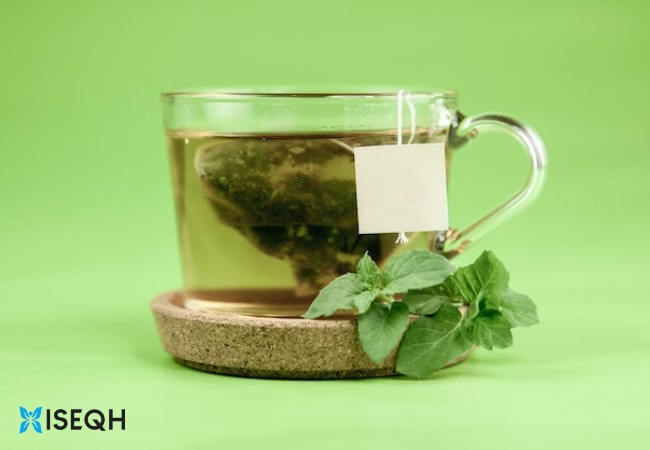
The benefits of green tea have been known for thousands of years now and it is widely used across the world for its many benefits. ADHD is associated with a number of symptoms which can have a huge impact on a person’s life and well-being.
It is thought that the antioxidants found in green tea may be able to help improve these negative effects of ADHD. It has been shown that taking green tea on a regular basis can lower the amount of adrenaline in the body and improve the function of neurotransmitters in the brain.
It is also thought to slow down the release of certain chemicals which can help to reduce the negative symptoms of ADHD. Green tea is also said to help reduce stress in people with the condition.
This is because it helps to promote a calm and relaxed state by triggering the release of the stress hormone cortisol. Overall, it is considered a safe treatment option for people with ADHD who have tried other treatment options without success.
SUMMARY
Green Tea has many health benefits. Antioxidants found in green tea may be able to help improve the negative effects of ADHD. It can also lower the amount of adrenaline in the body and improve the function of neurotransmitters in the brain.
Frequently Asked Questions (FAQs)
What are Nootropics?
They are naturally-occurring chemical compounds found in a variety of food sources such as coffee and chocolate that have beneficial effects on the brain and body. They generally have nootropic effects on the central nervous system (CNS) such as boosting focus and concentration and improving memory retention. Examples of well-known nootropics include caffeine, piracetam, choline, vinpocetine, noopept, and bacopa monnieri.
Can Nootropics help with ADHD?
High-quality nootropics can definitely help manage or improve the life quality of a person suffering from ADHD. There are a lot of different options when it comes to choosing the best nootropic for ADHD sufferers and that can be quite overwhelming for most people trying to make a decision about what product to buy. One of the main things to look out for when choosing a nootropic to help manage ADHD is the ingredients used in making it.
What are the side effects of Nootropics?
Common side effects include headache, nervousness, anxiety, irritability, nausea, dizziness, and sleep problems. Many people experience minor side effects after taking their first dose of nootropics but they usually go away after a few days as your body gets used to them. If you are concerned about any side effects you may experience after taking your nootropics then you should talk to a healthcare professional before starting to take it.
Are Nootropics safe to take?
Most nootropics are generally considered to be very safe as they are made from natural compounds found in the human body. They will not give you any significant side effects when you take them as long as you follow the recommended dosage which is printed on the packaging.
Can children with ADHD take nootropics?
The ingredients in nootropics such as caffeine can make children with ADHD hyperactive which is why they should not be given to young children with ADHD. Children under 18 should only be given small amounts of caffeine-containing products as it is best not to expose them to too much caffeine in the first place. Parents should always monitor their children when they first start taking nootropics to make sure they are not experiencing any side effects.
KEY TAKEAWAY
Nootropics can definitely help manage or improve the life quality of a person suffering from ADHD.
There are some side effects associated with the use of nootropics including headaches, nervousness, anxiety, irritability, nausea, dizziness, and sleep problems but they are usually mild in nature and will resolve after a few weeks of regular use.
There are different types of nootropics available in the marketplace today so you should take the time to do your research before you decide which one is right for you.





